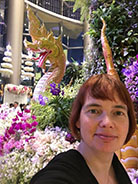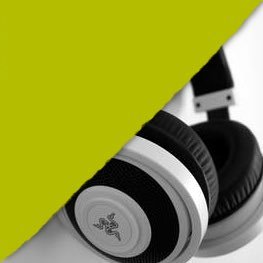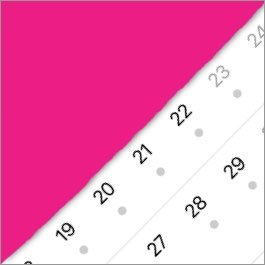MEET THE EXAMINER - SALLY MARTIN BROWN

I have just returned from an examining tour of Bangkok, Thailand and Kuala Lumpur, Malaysia and am now travelling round the UK. I would firstly like to say thank you to all of you that I meet during exam tours, who are so welcoming on my travels for Trinity. I appreciate how hard the staff and candidates work in preparation for an examiner’s arrival. .
One of the most interesting parts of travelling as an examiner is the opportunity to meet and talk with a lot of people from the host country and play a small part in their musical lives. Believe it or not, examiners do want everyone to enjoy performing in their exam and play to their best. We know you are often nervous and that you are probably the harshest judge of your own playing. I would like to encourage those of you who find yourselves making errors in a song, or the Session skills, to maintain focus, not prejudge your errors and above all to keep going!
We can’t evaluate silence so, however frustrated you feel when making a mistake that perhaps you’ve never made before, keep focused on the music and try to maintain your concentration. All musicians at all levels have made musical mistakes, sometimes embarrassing ones across their musical careers, but it’s the recovery of a performance that demonstrates a good ear and a self-confidence in committing yourself to continue no matter what.
I always encourage students to use the waiting and warm up time to get ready, and here are some preparation reminders following recent experiences of some candidates:
- Don’t be late! You wouldn’t be late to play in a gig and I think you would agree that time keeping is a fundamental part of music!
- Ask whoever is bringing you (if you are not in control of transport to your exam), to set out with enough time to arrive 15 minutes before your exam time. Being late can make you more nervous, which is not a good mind-set before an exam.
- Tune your instrument before you come in to the exam room! If you are Initial Grade or Grade 1 and are not confident in this, you may want to bring someone with you to help you check before the exam. If something happens to your tuning during the exam, the examiner does have recorded tuning notes that you can use to retune the string(s).
- Have your cables, amp etc. where appropriate, ready and set up swiftly. You may have someone come in with you, such as your teacher, to help up to Grade 5. At the lower grades in particular, especially if doing your first exam, check that you know where the volume is on the amp if it’s different from your one at home. At the higher grades, where you may have a long piece, perhaps use two music stands with an extended copy of the music, so you don’t have to page turn.
- If you are a singer, prepare your voice before you come in. You may bring a bottle of water in with you if needed. Check the mic stand height and know how to change the two types of mic stand that are usually around – the straight and the angled kind. A mic you are not used to can affect your sound, making it seem unfamiliar, so really listen to the sound check to see if you want to change the mic or track volume. Some songs go from pp to ff so remember this when listening to the balance.
- If sitting a Keyboard exam, check the stool height, volume control and settings. You may need to adjust the Keyboard volume against the backing track for a good balance.
- For Drums, always check the layout and get used to trying different kits before you come if you can, so that a slightly different one doesn’t faze you. An examiner cannot tell you which is the Ride and the Crash, but they are usually set out in a regular way and may indeed have the name ‘Ride’ or ‘Crash’ written on them. You should play the kit to match the acoustic of the exam room, so bear this in mind when balancing your playing with the track in the sound check.
- For Playback, always look at the dynamics and articulation details in the 30 seconds prep time before the practice with the track. These can be missed and form part of the marks. Make sure you know to play AFTER the track example, not on top of it. Above all, keep going if you make an error as synchronisation is one of the areas marked.
- For Improvisation, remember that there are marks for variation and development. Use the Trinity Rock & Pop website, the new Session skills books and the vast number of examples on the Rock & Pop YouTube channel to get ideas. You can extend the range used on repeats and develop melodic and rhythmic ideas. Always observe the solo break if there is one, as it’s a chance to show off like you would in a gig if in a band. Imagine you are interacting with the players on the track and try to enjoy yourself!
An exam is a very unusual environment to perform music, as there is only one audience member and the examiner is writing about you as you play. We are looking forward to being entertained and communicated with, through your performance, so really make it your goal to communicate your feeling and understanding of your chosen songs and their style.
I’m always excited when a candidate has really prepared the dynamics and articulation markings well and clearly understands why they are there, as using the musical details accurately enhances meaning and shows us that you know how to influence the expression of the mood and style. They give inflection, interpretation and personality to the music, making the music your own.
There is a wide selection of pieces with the own choice option too (see parameters on the Trinity Rock & Pop website for the correct standard), so it’s great to see students really enjoying their pieces. We can really tell when you like a piece, as the intensity to communicate it and lose yourself in the enjoyment of playing it is easy to hear and see.
It’s a privilege to be involved in supporting your progress as musicians and I look forward to hearing what you have to play.
In your exams: be brave, bold and above all try to immerse yourself in the music so you can express yourself and have fun playing.







